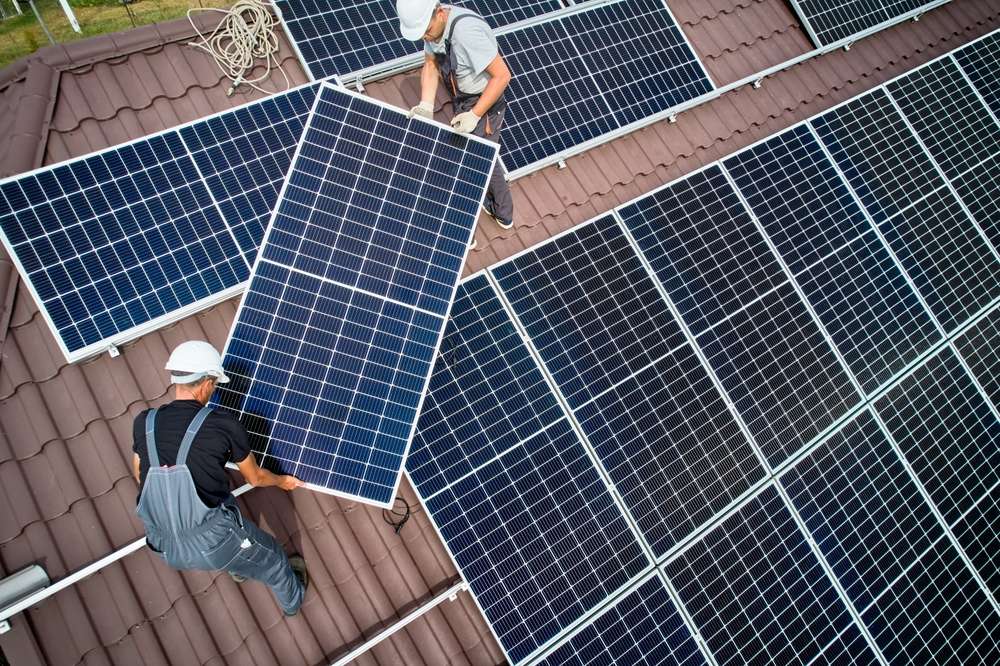Understanding Water Heaters and Boilers for Your Home
Water heaters and boilers are essential appliances that provide comfort and convenience in modern homes. Whether you need hot water for showers, cleaning, or space heating, understanding the differences between these systems and the latest technologies can help you make informed decisions. This guide explores efficient options, advanced features, and energy-saving solutions to optimize your home's heating needs.

Efficient Water Heaters Guide
Choosing an efficient water heater requires understanding the various types available and how they match your household needs. Traditional storage tank water heaters keep a reservoir of hot water ready for use, while tankless models heat water on demand, eliminating standby energy losses. Heat pump water heaters extract warmth from surrounding air to heat water, offering significant energy savings in suitable climates. Solar water heaters harness renewable energy, reducing reliance on electricity or gas. When selecting a water heater, consider factors such as household size, hot water usage patterns, available fuel sources, and installation space. Energy efficiency ratings like the Uniform Energy Factor help compare models objectively. Regular maintenance, including flushing sediment from tanks and checking heating elements, extends equipment lifespan and maintains efficiency. Insulating hot water pipes reduces heat loss during distribution, further improving overall system performance.
Advanced Boiler Technology
Modern boilers incorporate sophisticated technology that enhances performance, efficiency, and reliability. Condensing boilers capture heat from exhaust gases that traditional models release, achieving efficiency ratings above 90 percent. Modulating burners adjust flame intensity based on heating demand, reducing fuel consumption and temperature fluctuations. Integrated controls and smart thermostats enable precise temperature management and remote monitoring through mobile applications. Combination boilers provide both space heating and domestic hot water without requiring separate storage tanks, saving installation space. System boilers work with sealed heating systems and separate hot water cylinders, suitable for homes with multiple bathrooms. Regular boilers, also called conventional or heat-only boilers, require both cold water tanks and hot water cylinders, fitting traditional heating setups. Material advances such as stainless steel heat exchangers resist corrosion and extend service life. Low-emission burners reduce environmental impact while maintaining heating performance. Proper sizing ensures boilers operate efficiently without excessive cycling or inadequate heating capacity.
Innovative Energy Saving Solutions
Energy-saving solutions for water heating and space heating systems reduce utility bills while minimizing environmental impact. Programmable thermostats adjust temperatures based on occupancy schedules, avoiding unnecessary heating when spaces are unoccupied. Zone heating divides homes into sections with independent temperature controls, directing warmth only where needed. Improved insulation in walls, attics, and floors reduces heat loss, allowing heating systems to operate less frequently. Weather compensation controls adjust boiler output based on outdoor temperatures, optimizing fuel use throughout varying conditions. Thermal storage systems heat water during off-peak electricity periods when rates are lower, storing it for later use. Hybrid systems combine multiple technologies, such as heat pumps with gas boilers, switching between sources based on efficiency and cost considerations. Regular professional servicing identifies inefficiencies, cleans components, and ensures safe operation. Upgrading older equipment to high-efficiency models often provides substantial long-term savings despite initial investment costs.
Understanding System Costs and Options
Water heater and boiler costs vary significantly based on system type, capacity, efficiency ratings, and installation complexity. Storage tank water heaters typically range from 800 to 2,500 AED for the unit, with installation adding 500 to 1,500 AED depending on location and existing infrastructure. Tankless water heaters cost between 2,000 and 6,000 AED, with higher installation expenses due to electrical or gas line requirements. Heat pump water heaters range from 4,000 to 8,000 AED, offering lower operating costs that offset initial investment over time. Boiler replacement costs depend on system type and home size, generally ranging from 5,000 to 15,000 AED including installation. Condensing boilers command premium prices but deliver superior efficiency and reduced fuel consumption. Annual operating costs vary based on fuel type, usage patterns, and equipment efficiency, with natural gas typically proving more economical than electricity in many regions.
| System Type | Typical Cost Range (AED) | Key Features |
|---|---|---|
| Storage Tank Water Heater | 800 - 2,500 | Reliable, lower upfront cost, various capacities |
| Tankless Water Heater | 2,000 - 6,000 | On-demand heating, space-saving, energy efficient |
| Heat Pump Water Heater | 4,000 - 8,000 | Highest efficiency, lower operating costs |
| Condensing Boiler | 6,000 - 15,000 | Superior efficiency, reduced emissions |
| Combination Boiler | 5,000 - 12,000 | Space heating and hot water, compact design |
Prices, rates, or cost estimates mentioned in this article are based on the latest available information but may change over time. Independent research is advised before making financial decisions.
Maintenance and Longevity Considerations
Proper maintenance extends equipment lifespan and maintains optimal performance. Water heaters benefit from annual inspections that check heating elements, thermostats, and pressure relief valves. Flushing sediment from storage tanks prevents buildup that reduces efficiency and causes premature failure. Anode rods in tank water heaters require periodic replacement to prevent corrosion. Boilers need annual servicing by qualified technicians who clean burners, inspect heat exchangers, check safety controls, and verify proper combustion. System pressure should remain within manufacturer specifications, with pressure relief valves tested regularly. Bleeding radiators removes trapped air that impedes heat distribution. Water quality affects equipment longevity, with hard water accelerating scale formation that reduces heat transfer efficiency. Water softeners or descaling treatments protect components in areas with mineral-rich water. Monitoring energy consumption helps identify performance degradation before complete system failure occurs. Timely repairs address minor issues before they escalate into costly replacements.
Making Informed Decisions
Selecting appropriate water heating and space heating equipment requires evaluating multiple factors beyond initial purchase price. Energy efficiency directly impacts long-term operating costs, with higher-efficiency models often recovering their premium through reduced utility bills. Available fuel sources, local energy costs, and climate conditions influence which technologies prove most economical. Installation requirements affect total project costs, with some systems demanding extensive modifications to existing infrastructure. Equipment capacity must match household needs without excessive oversizing that wastes energy. Warranty coverage and manufacturer reputation provide insight into expected reliability and support availability. Professional consultations help assess specific situations and recommend suitable solutions. Rebates and incentive programs may offset costs for high-efficiency equipment, improving return on investment. Understanding these considerations enables homeowners to balance immediate expenses with long-term value, comfort, and environmental responsibility.




